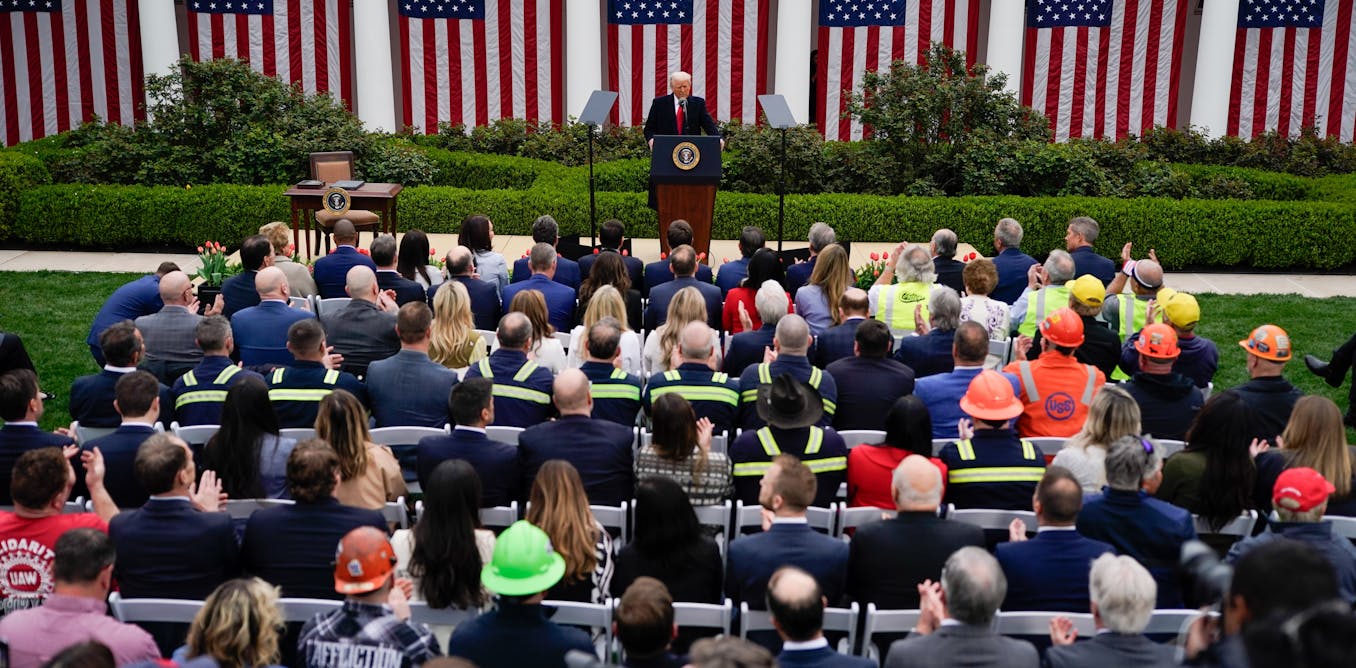
The Allure of the Past: Why Tariffs Won’t Resurrect American Manufacturing
The romanticized image of bustling American factories, churning out goods for a thriving nation, persists in the collective imagination. It’s a vision often invoked by politicians promising a return to a golden age of manufacturing, suggesting that simple protectionist measures like tariffs can magically recreate this past prosperity. This nostalgic view, however, ignores the complexities of the modern global economy and the fundamental shifts that have reshaped manufacturing landscapes worldwide.
The core argument for tariffs – that they protect domestic industries from foreign competition – is simplistic. While tariffs might offer a temporary reprieve to some struggling companies, they ultimately harm consumers and impede economic growth in the long run. Higher prices on imported goods directly impact consumers’ purchasing power, reducing disposable income and hindering overall economic activity. This effect isn’t confined to the goods directly affected by tariffs; the increased cost of production ripples across the economy, impacting various sectors dependent on those imported goods or their components.
Furthermore, the belief that tariffs will lead to a significant resurgence of domestic manufacturing overlooks the multifaceted reasons for the decline of American manufacturing in the first place. Automation, technological advancements, and the shift towards a globalized economy have fundamentally altered the landscape. While some jobs have been lost to overseas manufacturing, many have been lost to automation within the US itself. Focusing solely on tariffs ignores these critical factors and presents a false solution.
The assumption that bringing manufacturing jobs back to the US through tariffs is a straightforward win also fails to account for the intricacies of global supply chains. Modern manufacturing relies on complex international networks; components are sourced from various countries, assembled elsewhere, and then distributed globally. Imposing tariffs disrupts these intricate networks, increasing costs and potentially leading to shortages. Businesses may relocate to countries with lower tariffs or find alternative supply sources, resulting in job losses in other sectors.
Moreover, the focus on manufacturing often overshadows the growth of other sectors within the US economy. The service sector, for example, has become increasingly dominant, employing a larger percentage of the workforce than manufacturing. Focusing resources and policies solely on reviving manufacturing at the expense of other sectors is a misallocation of economic potential. A healthy and balanced economy requires a diverse range of industries to thrive.
In essence, the idea that tariffs alone can bring back the “glory days” of American manufacturing is a misguided and nostalgic view. It’s a simplification of a complex economic reality, neglecting the crucial role of automation, global supply chains, and the growth of other sectors. While some industries might benefit temporarily from protectionist measures, the long-term consequences for consumers, businesses, and the overall economy are likely to be negative. A more holistic and nuanced approach, focusing on investment in education, technological innovation, and infrastructure development, is needed to foster sustainable economic growth and create a vibrant and competitive economy in the future. The past cannot be replicated through simplistic economic policies; instead, we must focus on building a resilient and adaptable future.



Leave a Reply